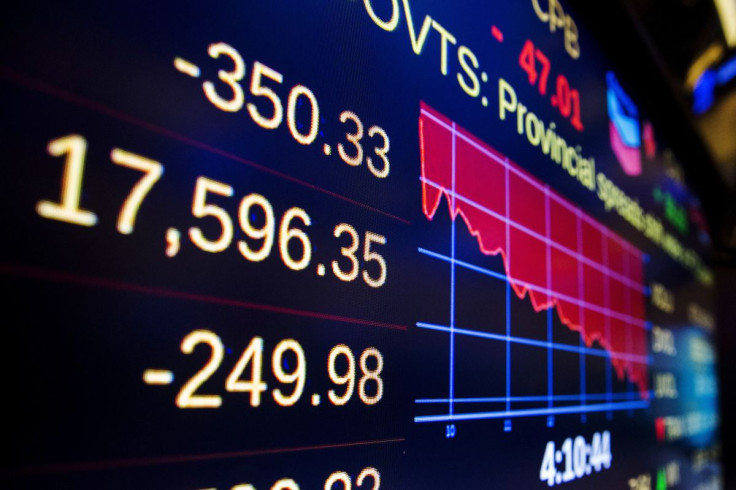Stock Market Sell-Off Broadens, Spreading To Tech Leaders — Time For Bargain Hunting?

The U.S stock market sell-off broadened last week, touching tech leaders, as sentiment remained negative. However, some experts see value beyond these tech leaders in market areas where valuations have become more reasonable.
The S&P 500 ended the week at 4,117, down 2.5%; the Dow Jones at 32,417, down 1.7%; and the tech-heavy Nasdaq at 12,643, down 1.6%.
These losses came on top of similar losses in the previous week, as the sell-off touched the tech leaders, which weigh heavily on market indexes. For instance, Alphabet, the parent company of Google, lost 11% that week. Meta, the parent company of Facebook, lost 5.9% and Microsoft 0.4%.
That's despite these tech giants reporting better-than-expected earnings.
Traders and investors, who earlier in the year were looking for every excuse to buy, are now looking for every reason to sell.
One of the reasons is sales weakness in some areas, like the cloud business, a hot sector for tech leaders. At least, that was the case for Alphabet.
Another reason was softer guidance for the current quarter, as with Meta.
"Investors have been disappointed with softer earnings guidance, especially companies with higher priced valuations," Andrew M. Aran, managing partner at Regency Wealth Management, told International Business Times. "Several leading tech and other fast-growing company stocks are trading excessively high P/Es earlier this year."
A third reason is the persistence of high bond yields. The benchmark 10-year Treasury yield approached the 5% mark during the week before settling at 4.86 at the end. It's up from 4.68% two weeks ago.
These high bond yields, which parallel the yields of the spring of 2007, a few months before the stock market crash and the Great Recession, pose a severe challenge to the U.S. economy and equities.
"Stock market values are contingent upon yields available in the fixed income markets," said Robert Johnson, a professor at Heider College of Business, Creighton University. "Interest rates are critical inputs to the valuation process – and influence the value of stocks and bonds."
"Higher interest rates and sticky inflation make it difficult for the economy to continue avoiding a recession, and investors may be discounting it," added Aran.
He sees stock prices continue to lose ground until there is clarity about the Fed policy, inflation and the stability of economic growth.
"As long as inflation is not at the Fed's target, and economic data suggests continued strength, there will be uncertainty in the equities market," he explained. "Not only about whether the Fed will continue to raise interest rates, but about how long the Fed will hold rates up for and what it will take to lower them."
"Stock markets climb a wall of worry," noted Peter C. Earle, an economist at the American Institute for Economic Research. "After 18 months of interest rate hikes, inflation is lower but not yet at the Fed's target range of 2%. Worse yet, the last few months have shown certain prices reverse their downward trend and accelerate back to the upside. As the Fed raises rates, the risk of a recession increases."
Still, there is some silver lining beyond the gloom and doom of recent weeks that has traders and investors running for the hills on Wall Street.
First, the current earnings season is proceeding better than expected for the S&P 500 companies, according to FactSet. Both the number of positive earnings surprises and the magnitude of these earnings surprises are above their 10-year averages.
"As a result, the index is reporting higher earnings for the third quarter today relative to the end of last week and the end of the quarter," John Butters, vice president and senior earnings analyst at FactSet, wrote in a blog post on Oct. 27. "The S&P 500 is now reporting year-over-year growth in earnings for the first time since Q3 2022."
Aran is beginning to see opportunities in areas of the market where valuations have become more reasonable after the recent sell-off.
"The S&P 500 Total Return Index currently has a composite P/E (price to trailing earnings) under 19x," he said. "The top 25 names are estimated to have an average P/E of 30x still, implying that the other 475 companies trade at a more reasonable 17.5X."
But he is cautious about highfliers. "We still see risk for some highflyers but see value in leading names that trade cheaper and have strong balance sheets and cash flow," he noted.
© Copyright IBTimes 2024. All rights reserved.




















